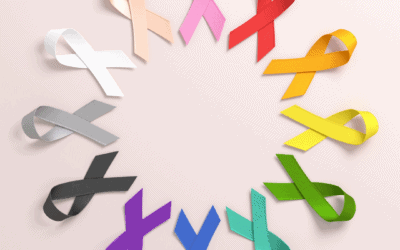We know that times are getting tough financially for most folks. And we know that oral health can start to slip down the priority list when times are tough. However, read on to learn 10 ways to save money on your oral and dental health.
1. Quit smoking/vaping
For those that smoke/vape, it can be very costly! Not just for your wallet, but due to the health implications. We all know about the links with smoking/vaping and lung issues. But what about your oral health?
According to The Better Health Channel, smokers are more at risk of mouth cancer, gum disease and tooth decay and complications after removal of teeth and/or oral surgery.
Those who vape are also at increased risk, but as vaping is relatively new, the long-term effects are not fully known. There is evidence that vaping can increase inflammation in the mouth, leading to gum disease.
For those that do smoke or vape, it’s really important to let your dentist know, and to visit the dentist regularly. At every check-up here at Dentistry On George, we do a soft tissue examination for any signs of oral cancer, and a gum disease screen. It’s important to pick these things up early, to avoid detrimental health issues as well as to prevent more costly and extensive treatments.
For more information on the oral effects of smoking/vaping, read our previous blog here, and speak to your dentist or doctor to help you quit.

2. Cut out juice/soft drink/energy drinks
Sugary and/or acidic drinks can have huge detriment to our general and oral health. Many people think that sugary drinks are the main culprit and switch to diet drinks or fruit juices. Acidic drinks, even if sugar free, can cause a lot of damage to your teeth.
By cutting down/cutting out on drinks that are not plain milk, water or tea/coffee without sugar, you will not only save money, but you will improve your general and oral health. This could again save money on future health interventions and/or dental work.
3. Check your health insurance
Are you getting bang for your buck? We have previous blogs on this issue – read the latest one here.
Ensure you understand what you are paying for. Does the amount you pay in premiums and the amount you get back make it worthwhile?
It’s also useful to speak to your dentist and find out the likelihood of you needing further dental work in the future. At Dentistry On George, we talk to our patients about immediate dental work that’s required, but we also plan for the long-term. This can help you plan for things financially.
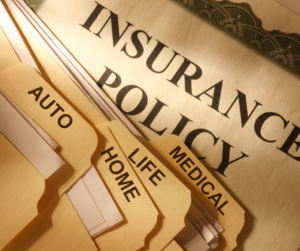
4. Cut out sugary snacks
Similar to the sugary drinks – sugary snacks will also damage your dental health, as well as your general health.
Tooth friendly snacks include things like cheese, nuts (but beware they are not too hard!) and fresh fruit.
Some argue that healthy foods are more expensive than junk foods. However, if you are wise about your snacks and plan your meals, you may feel fuller for longer on certain foods. Some ’empty calories’ such as cakes and biscuits won’t keep you feeling full and can be addictive, so you will eat more and more without any nutritional benefit.

5. Buy the right oral healthcare products
This may seem counter-intuitive: telling you to buy something to save money. However, having the right tools for the job will not only make your oral hygiene routine easier, but more effective. And more effective oral hygiene can reduce your risk of tooth decay and gum disease.
Here are Kathryn & Mishari’s top buys:
Oral B electric toothbrush
We recommend the Oral B Pro 300 for most patients (and it’s what we use at home!). They are regularly on offer at the supermarket. Our general recommendation is for the soft/sensitive toothbrush heads. These toothbrush heads will change colour over time to tell you when it’s time for a new head.
Each toothbrush head comes with a coloured band. You can have one electric toothbrush for the family, and interchange the heads.
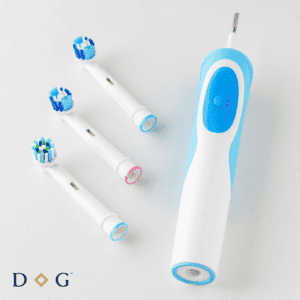
Fluoridated toothpaste
As long as the toothpaste has fluoride (you’re looking for around 1,450ppm), the rest is personal preference or for specific concerns, e.g., sensitivity.
We like fluoride in toothpaste as it has been proven to help the tooth enamel resist decay. However, we are aware that it’s a polarising and emotive issue. If you would rather stay clear of fluoride, we recommend products with xylitol, and your oral hygiene needs to be excellent. In addition, your diet needs to have minimal sugars (both added and natural).
Dental floss
Mishari’s preference is the Oral B Essential Floss; Kathryn prefers the Oral B Satin Tape. We won’t judge who’s side you take!
For those that have bridges or orthodontic wires – Oral B Superfloss is great.
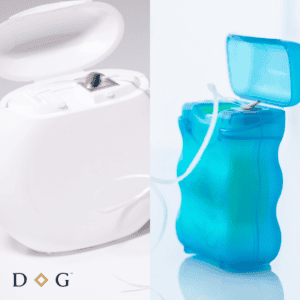
Interdental brushes
These are the small brushes that go between the teeth, towards the gumline (much like where you would use a toothpick). However, they are gentler on the teeth and gums than a toothpick, but very efficient at removing more plaque from between the teeth. The trick is to get the appropriate size – we recommend buying a packet of mixed sizes at first until you find the sizes that suit. You will need different sizes for different gaps, but easiest rule of thumb – use the largest size that will fit in the gap (without forcing it).
Which brand? Personal preference, or whichever is easier to find in the shops! Some patients find those at a right angle easier to get between the back teeth.
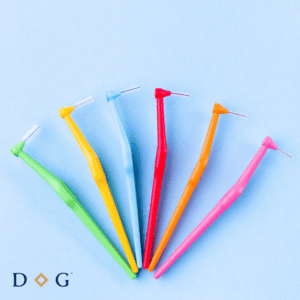
6. Visit your dentist regularly
By visiting us regularly, we can give you personalised advice and oral hygiene tips and tricks. In addition to this, we can catch things early – small fillings are much cheaper than big fillings. A small filling caught early is also much cheaper than a late stage root canal when the cavity has gotten much larger.
Many dental diseases can be prevented – we like to work with you to help prevent problems.
7. Educate yourself
We also like to inform you and educate you about your oral health. If you understand the causes of dental disease and how you can prevent them, then you can make more informed choices.
Some good sources of science-backed dental education:
Getting your education from the right sources, brings us on to the next money-saving tip…
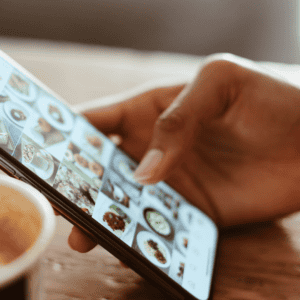
8. Don’t believe internet fads
We have many patients who ask us about products they’ve seen online or on social media. Rarely are they things we have heard about or would recommend. You can end up wasting money on products that don’t work. We like tried and tested, science-backed products. Worse than wasting money, you could end buying something or trying something that could actually damage your teeth and gums. If in doubt, follow tip number #9.
9. Ask your dentist
- Ask your dentist’s opinion before buying certain products online – some things at best can be a total waste of money; at worst can damage your teeth/gums.
- Speak to your dentist before you consider other options such as overseas dental work – see a recent blog article on this
- Find out what the best dental products are for you – we all have different needs and preferences and we like to tailor advice to each individual.
- If price is a barrier – ask about alternatives or payment options. Here at Dentistry on George we have the option of TLC dental loans, and have just started offering Afterpay.
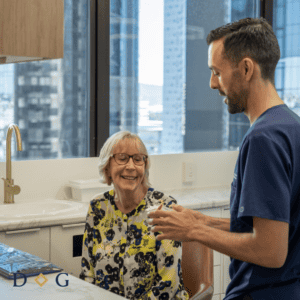
10. Get a second opinion
Before embarking on any expensive, extensive or invasive dental procedures, a second opinion is always useful. Before you commit to any dental work, ensure you have asked about alternative treatment options, and the pros, cons and risks of all the options.
Quite often there is an ‘ideal treatment’, but sometimes we can compromise with less than ideal, but still suitable treatment options. For example – would whitening get you the appearance you are looking for, rather than veneers? What about adding tooth-coloured filling materials rather than porcelain veneers?
We are always happy to see new patients for a consultation to go through treatment options as a second opinion. Similar to tip #7 – the more knowledge you have, the better the decisions you can make.
The final takeaway…
As always – prevention is better than cure. The majority of dental conditions can be prevented. By preventing dental disease, we can seriously reduce your dental bill!

